Small Mammal Vets In Fort Worth, TX
Essential aspects of your rabbit’s ongoing care include:
- Routine annual physical exams
- Regular weight checks
- A nutritious diet
- Routine blood work
- Consistent dental checkups
- Spay and neuter surgery
Rabbits need to see their vet for an annual exam so we can assess their health, check for signs of illness, and answer your questions related to their care. Whether you need advice about which kind of hay to feed your rabbit or are considering bringing another rabbit into the family, we’re here to help.
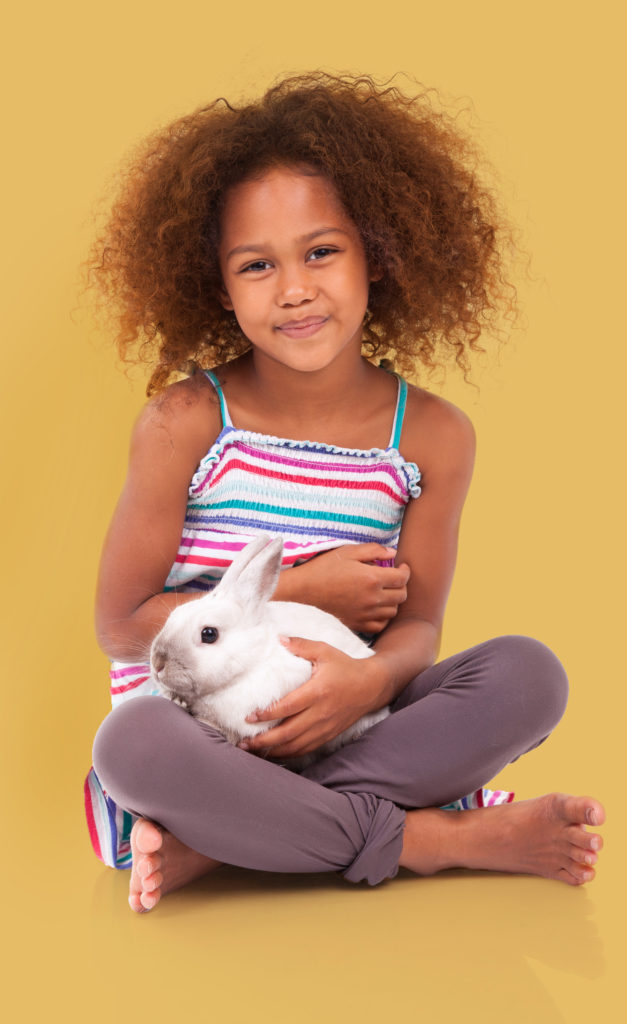
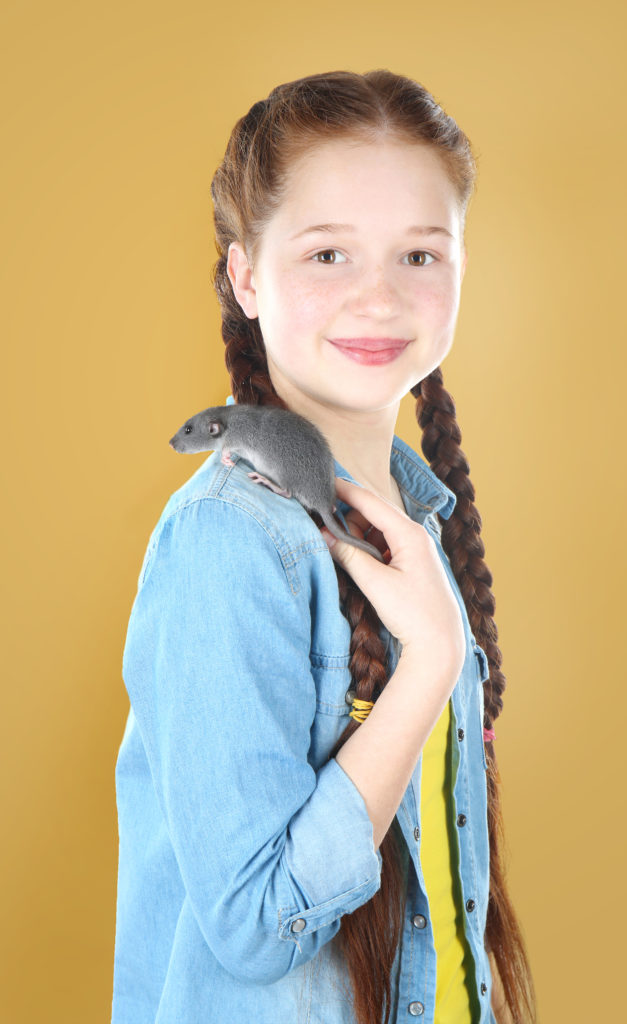
What your rat needs to stay happy and healthy:
- An appropriate diet
- Wire mesh wall enclosures
- Wooden or paper chew toys
- Small amounts of fruits and vegetables
- Spay surgery to prevent mammary tumors (females)
Rats have short lifespans, so their health can change very quickly. They should see us for an exam at least once a year so we can check their weight, heart, and lungs, and look for any physical abnormalities. Some signs of illness in rats include decreased appetite or loss of appetite, decreased activity, and passing less stool or not passing stool at all. Contact our hospital right away if you have concerns about your rat’s health.
Things your chinchilla needs for a long and healthy life:
- A diet of grass hay
- Regular dust baths
- At least 30 minutes of daily activity
- A spacious, multi-level enclosure
- A slightly cooler room temperature
We want to see your chinchilla at least once a year for a thorough wellness exam. During the exam we can address any concerns or questions you have, check to make sure your pet is healthy, and provide treatment if we find any health issues. We also recommend that you call us right away if your chinchilla is not acting like themselves. This may include eating less/not eating at all, difficulty passing feces, and appearing hunched and uncomfortable.
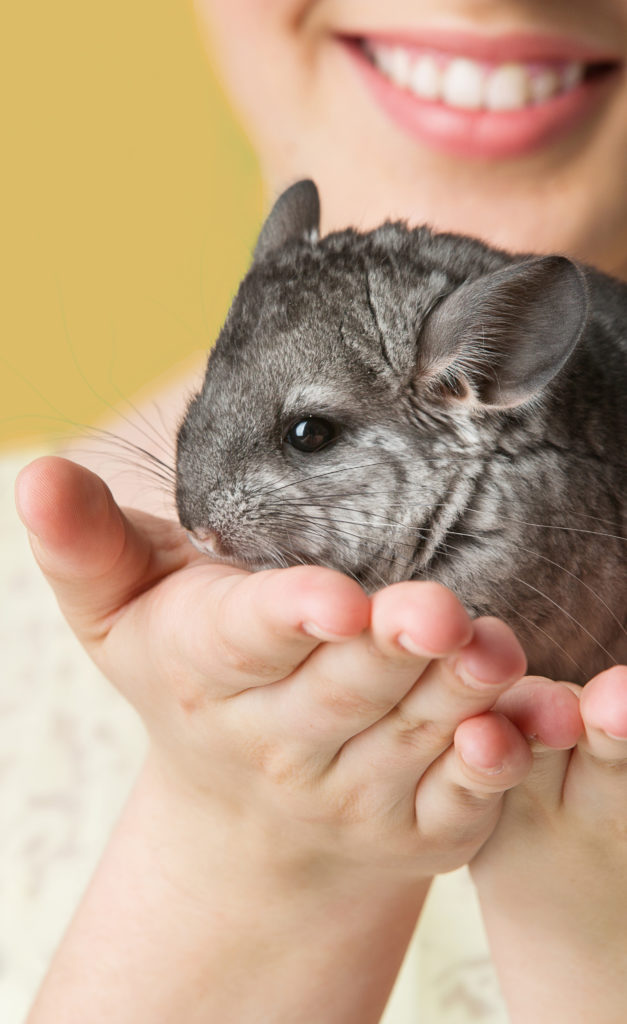
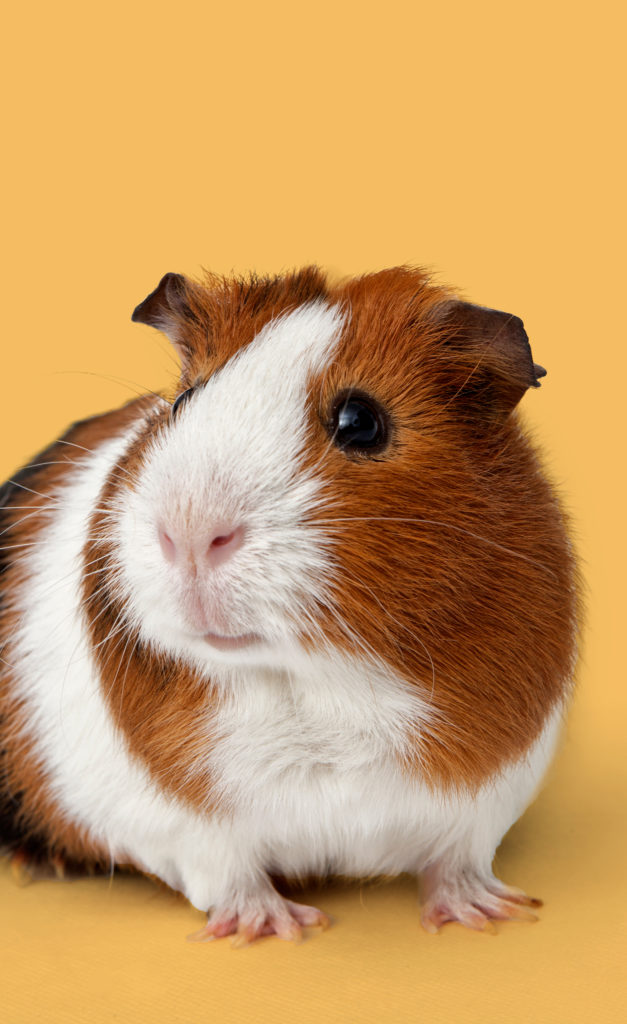
Essentials your guinea pig needs to enjoy a healthy life with you include:
- A grass hay diet
- A fresh vegetable diet
- Daily supplementation of vitamin C
- A well-ventilated habitat with solid flooring
- A spacious cage that is cleaned regularly
Annual exams are a must for guinea pigs because they give our team the chance to detect early warning signs of sickness sooner. We want to make sure your guinea pig is staying healthy, getting the right nutrients and living in an enriching environment at home. If you have any questions about your guinea pig’s health or behavior, the team at VO Vets is qualified to help.
What do sugar gliders need to be healthy and happy?
- A nectar and insect diet
- Small fruits and vegetables on occasion
- A spacious enclosure with good ventilation
- Branches, perches, and shelves for climbing
Like other pets, sugar gliders need to see their vet annually for a full wellness checkup. Along with assessing your pet’s overall health, we also need to look for any signs of sickness and address those signs quickly to prevent the development of a potentially life-threatening illness. Sugar gliders may conceal their symptoms, so regular exams are integral to catching health problems in time.
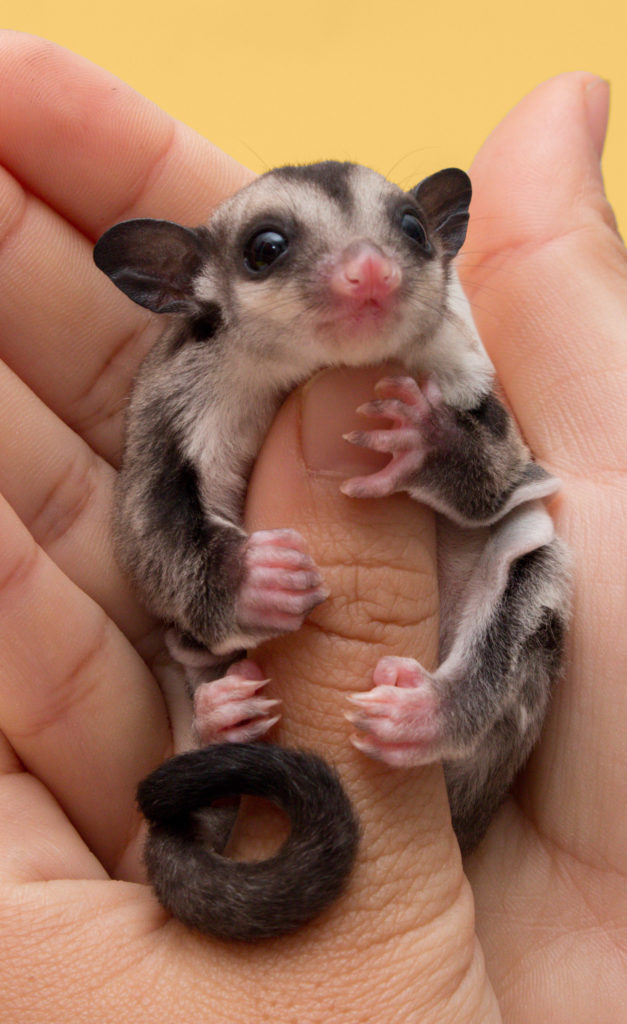
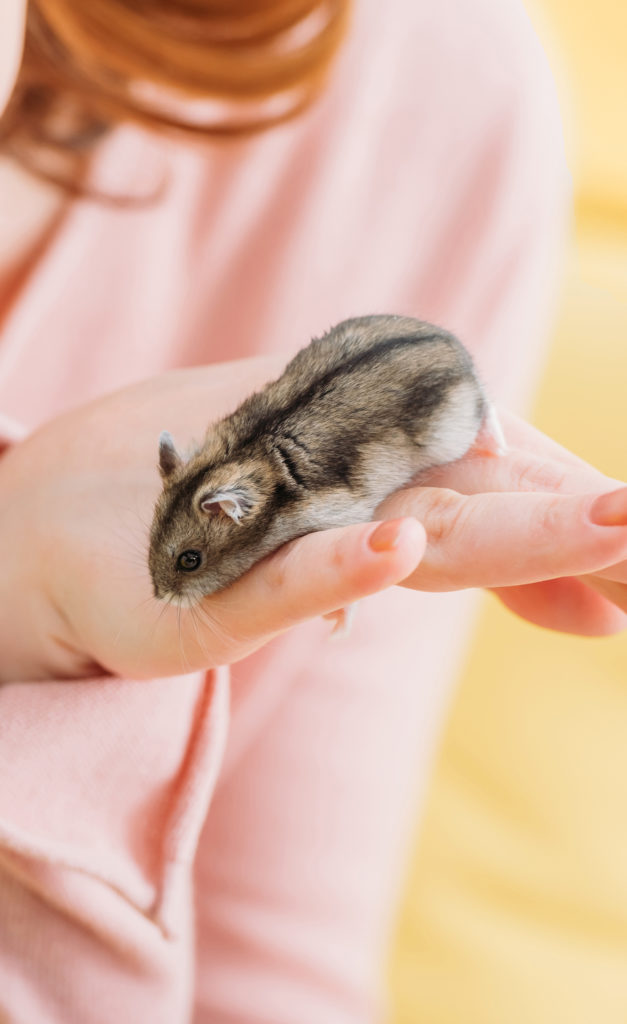
To take good care of your pet hamster, they need:
- A high-quality pellet diet
- Occasional treats of fruits and vegetables
- Individual housing (if you have more than one hamster)
- A spacious cage with proper bedding and nesting material
- Enriching tools like tunnels, wheels, and balls
We want to ensure the healthiest, longest life possible for your pet hamster. Ideally, they should come in at least once a year so we can perform a physical examination and make sure there aren’t any problems. If your hamster has been eating less or showing changes in their behavior, contact us as soon as possible to make an appointment.
Here are some important things your hedgehog needs to be well cared for:
- A high-quality diet formulated specifically for hedgehogs
- Occasional fruits and insects as treats
- A spacious enclosure with places to hide
- Climate-controlled temperature of about 75 to 85 degrees
- Supervised play outside of the enclosure
We recommend annual wellness exams for hedgehogs so we can touch base with you to see how your pet is doing, and if you have any questions or concerns about their health. Our team can also offer guidance to help you choose the best diet, housing, toys, and more so your hedgehog can stay active and happy.
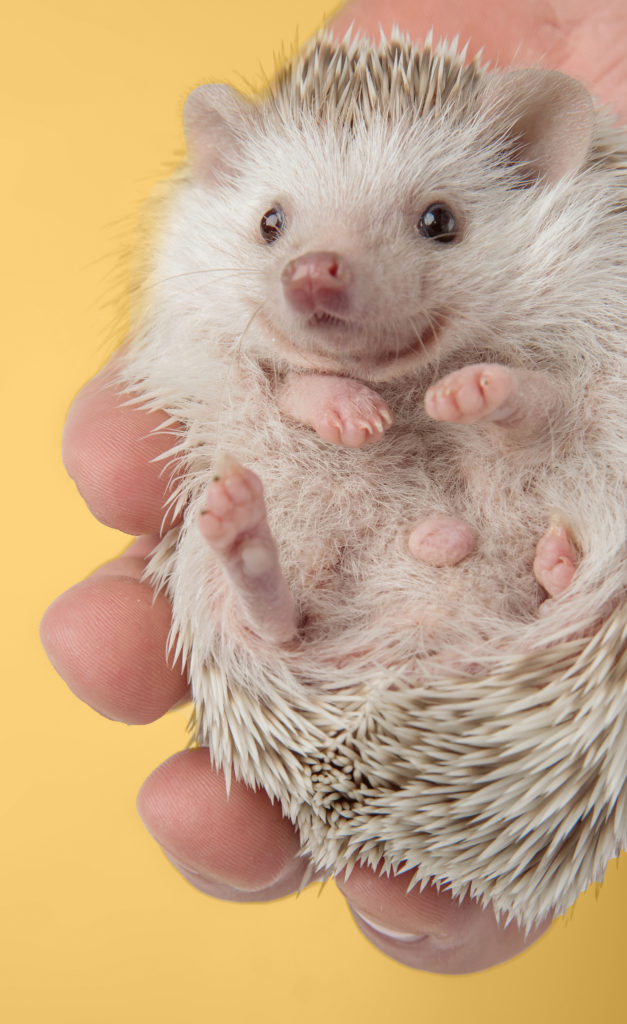
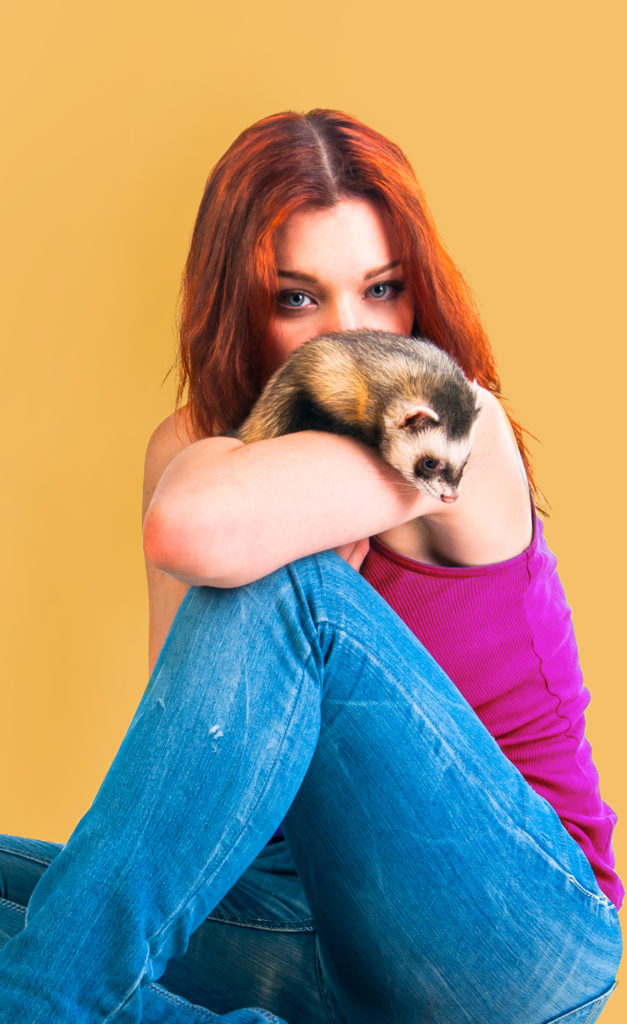
Important things your ferret needs so they can enjoy their best life with you:
- A protein-rich, meat-based diet (ferrets are carnivores)
- A spacious, multi-level cage (or cages) with ramps, bedding, and places to hide
- Wood-based or paper-based litter
- At least 4 hours of activity and exercise outside of the cage
- Rabies and distemper vaccinations
Ferrets need to see our vets at least once a year for their wellness exam, blood work, and vaccinations. Signs of illness in ferrets include loss of appetite, weight loss, difficulty breathing, coughing and wheezing, vomiting, and lethargy. If you see any of these signs in your ferret, call our hospital right away to schedule an exam.

